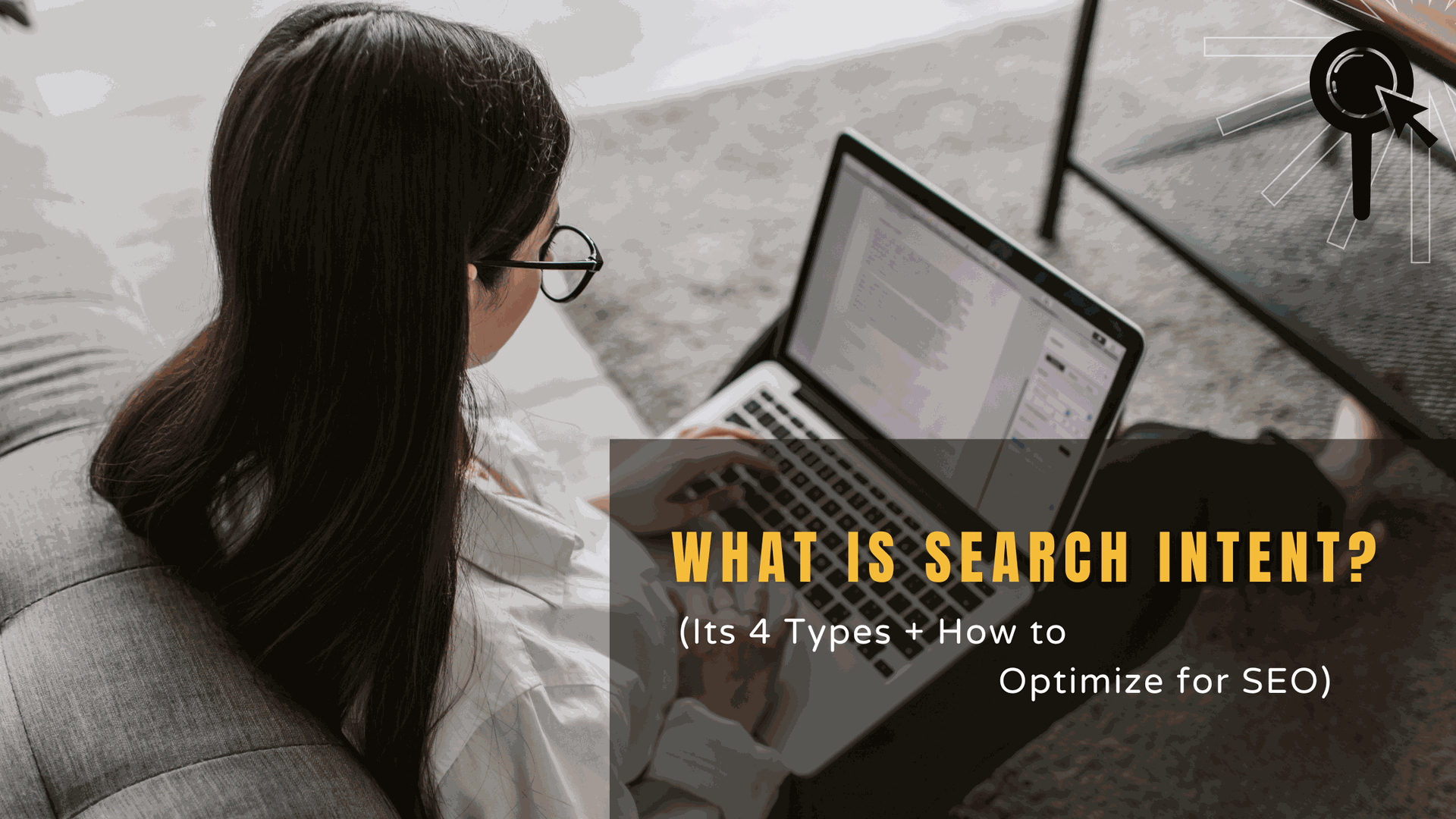Did you know that 70% of all search queries have informational intent, while only 1% are purely transactional? This indicates how important it is to align your content with what users are really searching for
Search intent (or user intent) refers to the purpose behind a search query from a user. Google and other search engines prioritise or rank content that is most relevant to what people are seeking. Search intent is important for SEO because it allows you to produce content that ranks better and meets user queries.
In this guide, we’ll explore:
- What is search intent?
- The 4 main types of search intent
- How to optimise for different search intents
- Why Google rewards intent-based content
Let’s go!
What Is Search Intent? 4 Types (+ How to Optimize for SEO)

What Is Search Intent?
Search intent is the reason behind the search query of a user. It outlines if they desire information, a product, a particular website, or are willing to purchase.
Google's algorithm examines keywords, context, and user behaviour to provide the most relevant results. If your content does not align with search intent, it will not rank well, even with Perfect SEO.
Read: On page/ Off page SEO complete Guide
The 4 Main Types of Search Intent
1. Informational Search Intent
Users want answers, guides, or explanations.
Example searches:
- “What is search intent?”
- “how to fix laptop keyboard button ”
- “Best SEO strategies 2024”
How to optimize:
- Create in-depth blog posts, tutorials, or FAQS.
- Use clear headings and structured data (like FAQS).
2. Navigational Search Intent
Users are looking for a specific website or page.
Example searches:
- “Facebook login”
- “YouTube official site”
- “Nike customer service”
How to optimize:
- Ensure your brand name ranks for branded searches.
- Optimize for “official site” or “[brand] login” queries.
3. Commercial Search Intent
Users are researching before buying.
Example searches:
- “Best budget smartphones 2024”
- “iPhone 15 vs. Samsung S23”
- “Top CRM software for small businesses”
How to optimize:
- Publish comparison guides, product reviews, and “best X” lists.
- Include affiliate links or lead-gen CTAs.
4. Transactional Search Intent
Users are ready to buy or take action.
Example searches:
- “Buy AirPods Pro online”
- “Sign up for a Netflix trial”
- “Cheap flights to New York”
How to optimize:
- Optimize product pages with strong CTAs (e.g., “Buy Now”).
- Use price-related keywords and discounts.
Read: LSI Keywords Guide
Why Google Cares About Search Intent
Google’s Helpful Content Update prioritizes content that satisfies user intent. If your page doesn’t match what searchers want, it won’t rank, no matter how well-optimized it is.
Higher rankings = Better alignment with intent.
Lower bounce rates = Users find what they need.
More conversions = Content drives desired actions.
How to Optimize for Search Intent or Search Engine
1. Analyse Top-Ranking Pages
Check Google’s top 10 results for your target keyword. Are they blog posts, product pages, or videos? Match their format.
2. Use the Right Keywords
- Informational: “How to,” “What is,” “Guide to”
- Commercial: “Best,” “Review,” “vs.”
- Transactional: “Buy,” “Discount,” “Near me”
3. Structure Content for Intent
- Informational: Long-form guides with FAQs.
- Commercial: Comparison tables, pros & cons.
- Transactional: Clear pricing, CTAs, trust signals.
4. Improve User Experience (UX)
- Fast loading speed.
- Mobile-friendly design.
- Easy navigation.
FAQ: Search Intent in SEO
Q: How do I find search intent for a keyword?
A: Utilize resources such as Google's "People Also Ask," Ahrefs, or SEMrush to know what content comes up.
Q: Can one keyword have multiple intents?
A: Yes! For example, “iPhone 15” could be informational (specs), commercial (reviews), or transactional (buy).
Q: Does voice search affect search intent?
A: Yes, voice searches tend to be conversational (e.g., "Where is the nearest coffee shop?"). Optimize for natural language.
Summary
Mastering search intent is key to SEO success. By aligning your content with what users truly want, you’ll:
✔ Rank higher on Google
✔ Get more qualified traffic
✔ Boost conversions
Next Step: Audit your top pages—do they match search intent? If not, optimize them today!
Need Help In SEO: No Worries!
We at Optimixia provide custom SEO services with semantic SEO as the backbone of our skills. The experts are ready and willing to help your business maximize your presence online and achieve more targeted leads on the website. Contact us today for the way forward toward Optimizing your SEO strategy for lasting success.